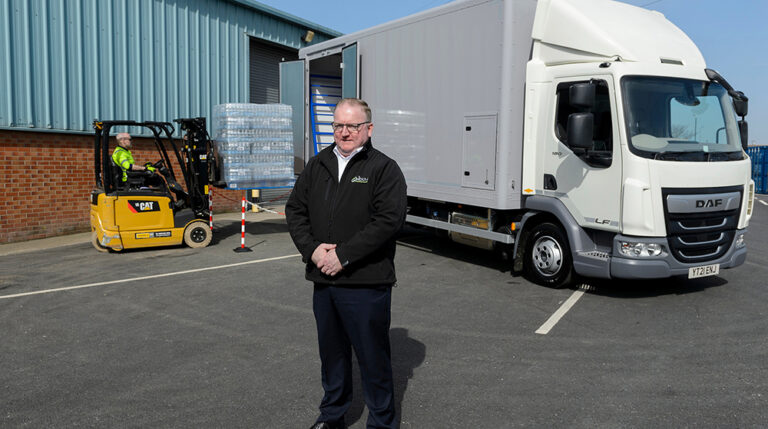Lindum Packaging is celebrating the anniversary of the launch of the UK’s first Mobile Pallet Stability Test Lab.
In the 12 months since the Lab was unveiled, the Grimsby-based company says it has completed 322 separate tests with customers throughout the UK. This has helped eliminate movement of goods during transit and reduced customers’ use of plastic pallet wrap by an average of 39% – saving thousands of tons of material.
Lindum, which is the UK’s leading expert on pallet wrapping and stability, says the mobile test lab has revolutionised the way UK businesses cut plastic and CO2through pallet wrap optimisation and improved transport stability.
The Lab is the first on-site real-time pallet stability testing facility able to test at customers’ premises. Prior to its launch in April 2021 companies had to conduct inconclusive transit trials, often at test facilities in Europe, at a cost of up to €8,000 per test.
“As well as reducing packaging costs, the Mobile Pallet Stability Test Lab has reduced movement in transport issues which leads to goods being damaged and often written-off,” said Bernard Sellars, Managing Director of Lindum Packaging. “This has saved our customers a lot of time and money as products now reach customers safely and in good condition.
“With the introduction of the Plastic Packaging Tax on 1st April, the Lab will continue to play a vital role in helping companies reduce their liability for the tax by optimising their use of pallet wrap.”
The Lab is driven to a customer’s factory or warehouse to test the performance of stacked pallets. It uses an onboard accelerator bench that simulates the stresses a loaded pallet is subject to when a vehicle brakes suddenly. A camera measures and records the deflection and movements in the pallet at a range of pre-set G forces and the data is analysed by specially written software to determine pallet stability performance in accordance with the EUMOS standard. Immediate feedback is provided to adjust the wrapping and a pallet can quickly be re-tested.
“We calculate that UK businesses use 150,000 tonnes of stretch wrap a year,” Sellars added. “Stability testing combined with use of correctly specified wrap could reduce this by 45,000 tonnes per year, saving money, reducing plastic waste and cutting CO2.”







